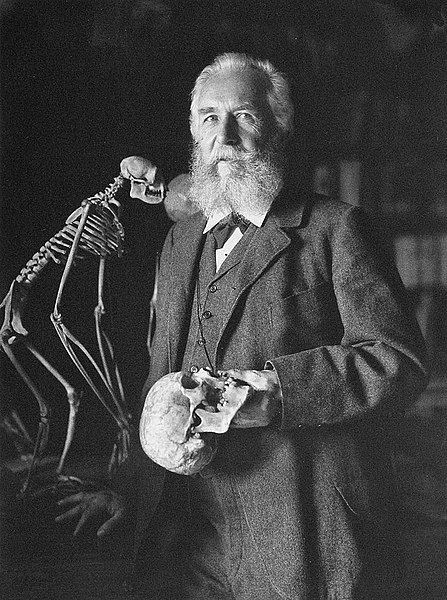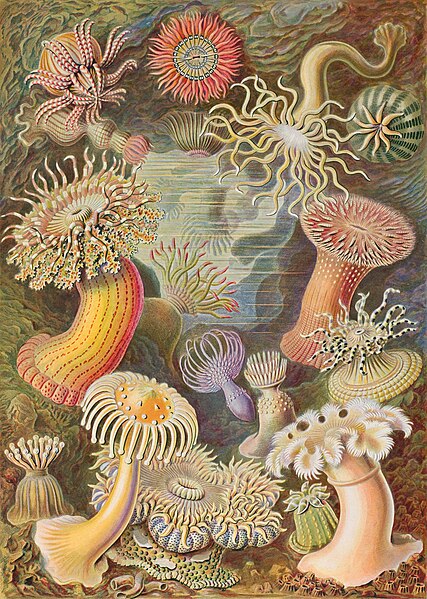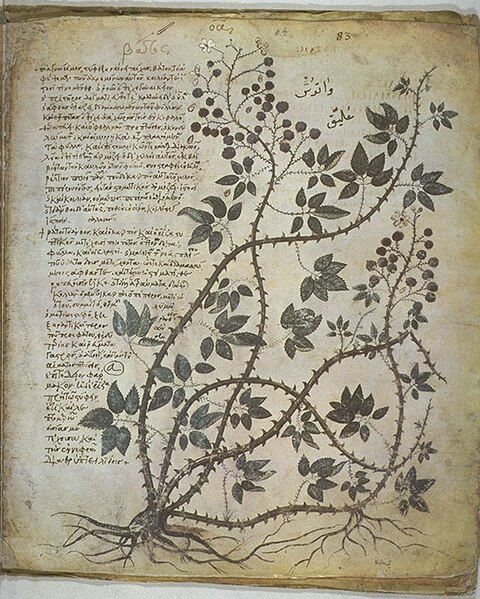Ernst Heinrich Philipp August Haeckel was a German zoologist, naturalist, eugenicist, philosopher, physician, professor, marine biologist and artist. He discovered, described and named thousands of new species, mapped a genealogical tree relating all life forms and coined many terms in biology, including ecology, phylum, phylogeny, and Protista. Haeckel promoted and popularised Charles Darwin's work in Germany and developed the influential but no longer widely held recapitulation theory claiming that an individual organism's biological development, or ontogeny, parallels and summarises its species' evolutionary development, or phylogeny.
Ernst Haeckel
Christmas of 1860
In later life
Sea anemones from Ernst Haeckel's Kunstformen der Natur (Art forms of Nature) of 1904
Natural history is a domain of inquiry involving organisms, including animals, fungi, and plants, in their natural environment, leaning more towards observational than experimental methods of study. A person who studies natural history is called a naturalist or natural historian.
Black and white tables of natural history, from Ephraim Chambers's 1728 Cyclopaedia.
A natural history collection in a French public secondary school
Blackberry from the sixth-century Vienna Dioscurides manuscript
Georges Buffon is best remembered for his Histoire naturelle, a 44-volume encyclopedia describing quadrupeds, birds, minerals, and some science and technology. Reptiles and fish were covered in supplements by Bernard Germain de Lacépède.








